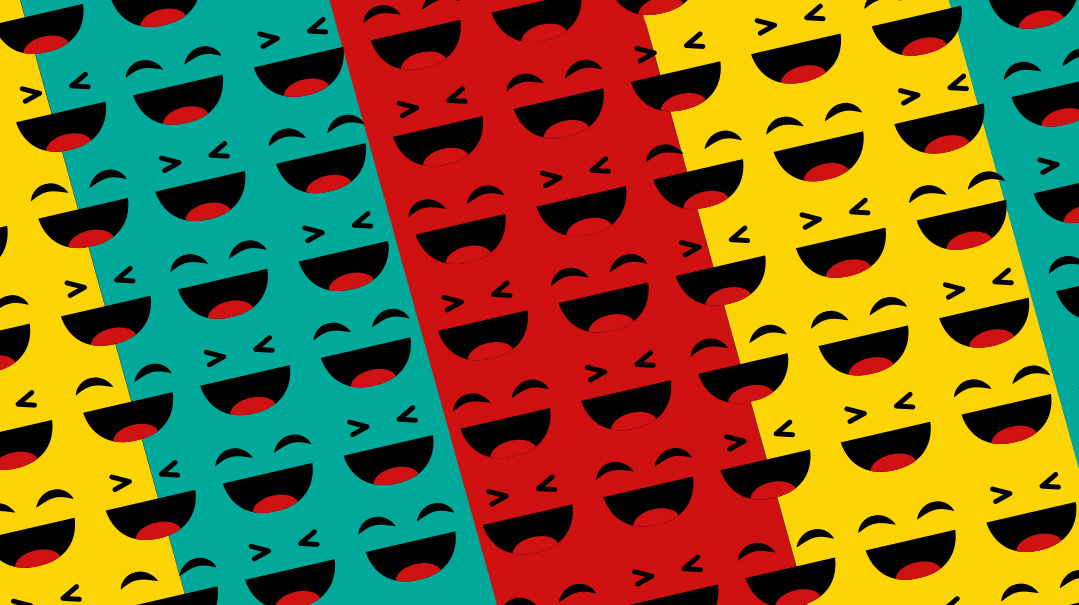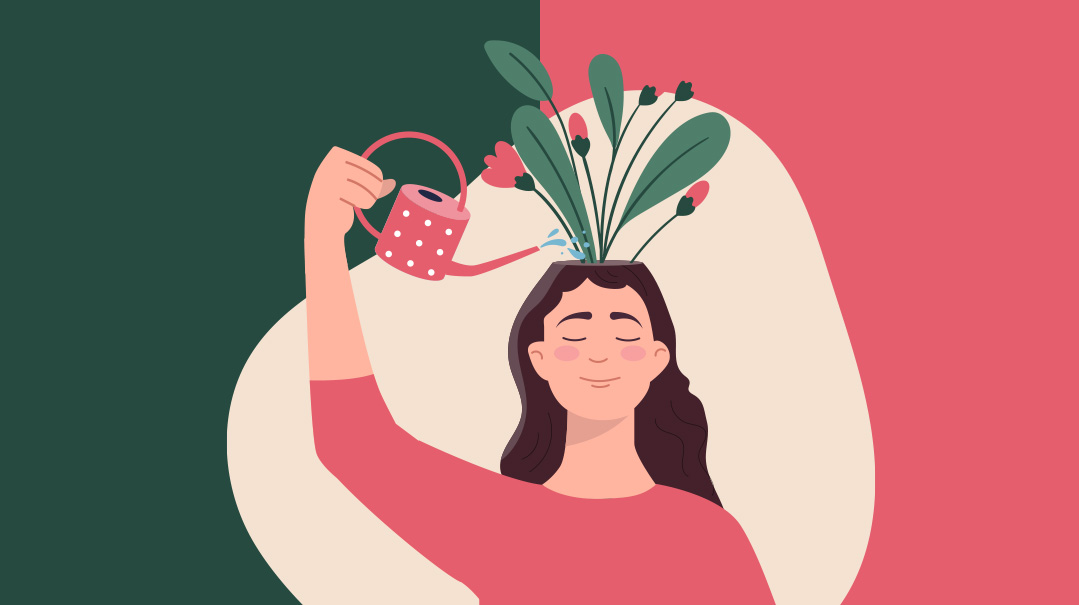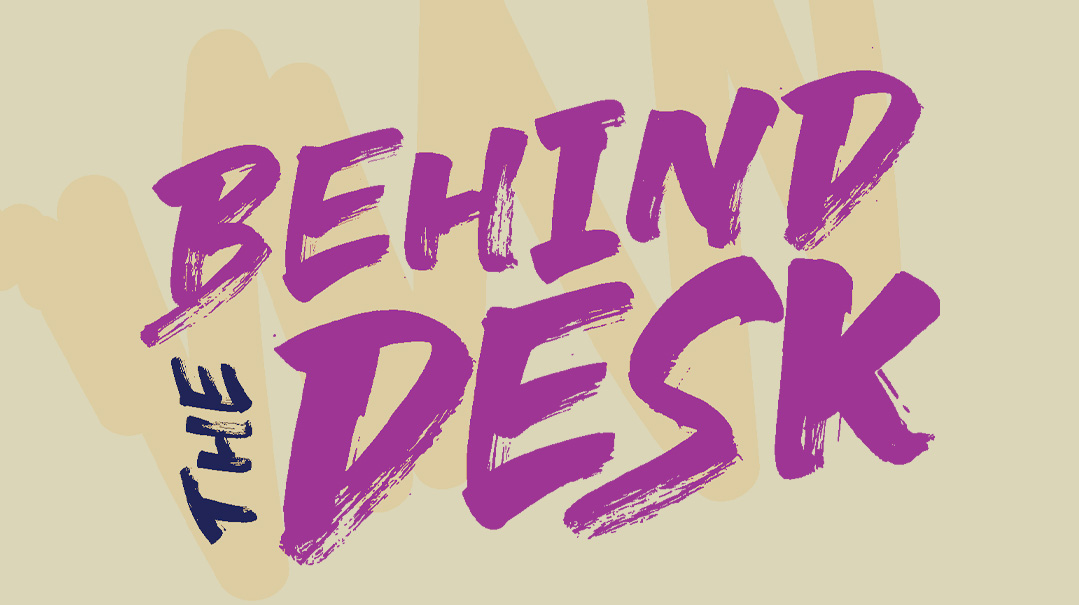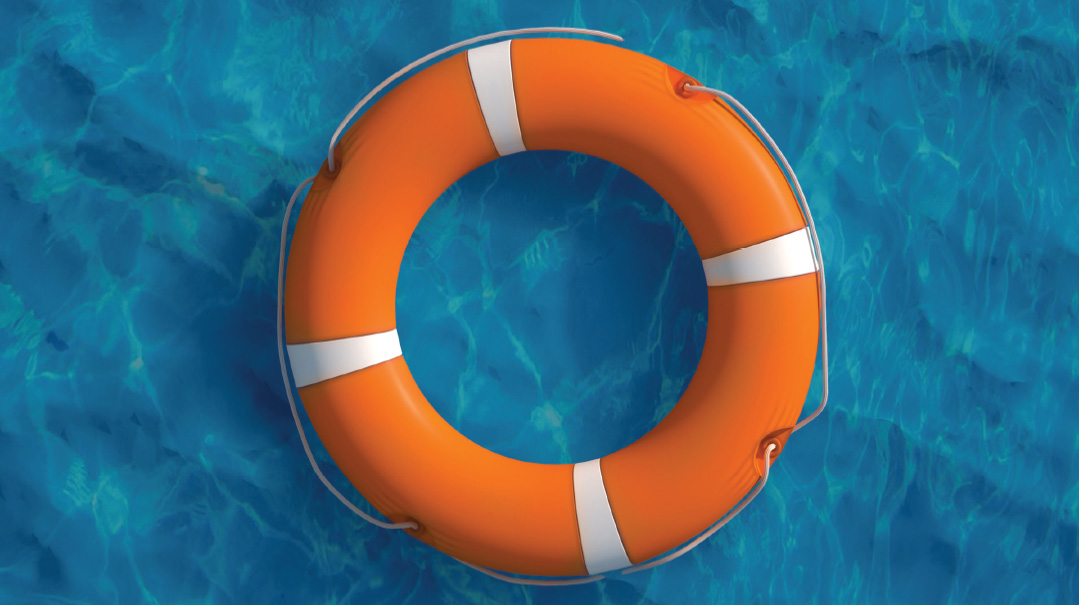Keep Calm and Laugh Out Loud
| July 25, 2023Wherever it is you’re spending your summer, don’t forget to laugh!

W
hen I was in school, I had a problem. I mean, don’t get me wrong, I have mostly pleasant memories of high school. I was blessed with phenomenal teachers and the most fun group of classmates. Nevertheless, I did have a problem. A pretty big problem. My problem was that I experienced frequent giggling spurts. I think I was a pretty mature student — why then, pray tell, did I go nuts if my teacher dropped her pen in the middle of a lesson? I can’t answer that, because I didn’t understand it myself. Honestly, I saw zero humor in a pen falling to the ground — zero — yet I was positively vibrating with laughter.
I used to dread these laughing attacks, because they were just plain embarrassing. I remember feeling resentful when my teachers would rebuke me for laughing, because I was a helpless victim to the laughter that would seize control of me. I vowed then that if one day I would be a teacher, I would never reprimand a student for having a laughing attack, no more than I would reprimand her for having a coughing fit. And what about in camp, you ask? Well in camp, laughter was pretty much part of the air we breathed, but there, too, I did run into some… let’s call them “issues.” Nothing a short apology couldn’t fix, but they were challenging moments nonetheless.
Baruch Hashem, I’ve mostly outgrown the problem. Except on rare occasions, uncontrollable laughing attacks are no longer a part of my life — and I can’t say I miss them very much. But looking back, it got me wondering about the science behind laughter. Hope all this fun stuff brings you more than a few laughs, but most importantly, wherever it is you’re spending your summer, don’t forget to laugh!
I’m So Emotional!
Laughter is known to be the most contagious human emotion, yet little is known about the mechanisms behind it. Laughter isn’t limited to conveying amusement. It can also be provoked by embarrassment, social discomfort, or painful situations. In short, laughter expresses an emotion, and what that emotion is can vary.
I’m guessing my laughter in school may have been caused by anxiety — anxiety about laughing!
Are You Nervous?
We sometimes laugh at embarrassing things that happen to others, even our close friends, because it’s a physical reaction from our brain that tries to tell us the thing that just happened isn’t as bad as it seems. According to neuroscientists, this form of laughter comes from the throat as opposed to the stomach. It may derive from our need to maintain dignity and control during a moment of unease.
Psychologists conclude that people laugh when witnessing others’ pain because it’s a defense mechanism used to prevent overwhelming anxiety. It’s our way of reducing the pain caused by a distressing event.
The unstoppable laughter is our way of communicating to those around us that we’re aware of the uncomfortable incident. Nervous laughter is usually intensified when we’re in a group — we’ll discuss more of the whys later.
Not in the Mood
Let’s not forget that laughter in general has numerous health benefits. Laughter helps boost the immune system, relaxes muscles, increases blood flow, and protects against heart disease. Laughter can also bring about positive changes to the mindset of a person by lowering anxiety, relieving tension, improving mood, and strengthening our ability to cope. A hearty chuckle has a similar effect on the body as a heavy workout. When we laugh, our body releases endorphins, which are neurotransmitters that make our body feel good. We don’t always feel like finding something to laugh about or to cheer us up, especially when we’re feeling down, but simple laughter can make life more tolerable by alleviating pain, sharpening our ability to remember things, and diminishing day-to-day pressures. So if you’re having a hard day, why not get together with a friend who has a good sense of humor, or even try sitting down with a good joke book, and see what it does for you.
It’s Contagious!
It’s one a.m. A kid in your bunk starts to chuckle, and pretty soon the entire bunk is roaring with laughter, even if the joke isn’t that funny, and even if you don’t know what it was in the first place. It’s the nature of laughter. Laughter is a known “contagion.” Endorphins are part of the reason for that; they spread like lightning. When two people share a chuckle, it strengthens their emotional bond, and it improves relationships. As the saying goes: Laughter is the shortest distance between two people.
Bet You Didn’t Know…
Women laugh 126 percent more than men.
Fifteen minutes of laughter a day can make you lose weight.
It’s been scientifically proven that laughter is contagious.
Heavy laughter brings much more oxygen to the lungs than normal breathing does.
Gelotology is the study of laughter and its effects on the human body.
Laughter is a sound that has no language.
A healthy laugh can help prevent infection.
It’s been proven that there is a significant drop in stress hormones after a good laugh.
The majority of laughter happens due to social responses. Only 10-15 percent of it is over actual jokes.
(And my favorite😊) Laughter is involuntary.
Control Yourself!
How to stifle an unwelcome laughing attack (Why didn’t anyone tell me about this when I was in school?)
Think of something sad. This one sounds pretty cliché, but it might do the trick.
Inhale. Exhale. Take a deep breath in… and then let it out slowly. Repeat several times.
Relax your jaw. This one might be hard to do.
Calm your mind. Try very hard not to think about whatever it was you’ve been laughing about. Choose to think about something soothing instead.
Stare at your nails. (This common one never worked for me, but hey, it might work for you.)
Pinch yourself. The slight pain might distract you from your urge to laugh.
Focus your attention on something in the room. Anything. Count the markers on the board. Concentrate on it until the urge to laugh leaves you.
Count backward from 100.
Make a list in your head. It can be a to-do list or just a list of your favorite things. Listing things in your head will help you feel more in control.
Sing a song to yourself. Concentrating on a tune and its lyrics is a great way to distract your brain.
Pick a color in the room and see in how many more places you can find that color.
Make laughter a big part of your life. Laugh a lot, and get others laughing, too! At the same time, if you or one of your friends struggles with laughing attacks like I did, don’t judge yourself or them for it. Remember that laughter is an emotion. Don’t be afraid of it, and let it do its thing. Just watch it unfold and pass, like an observer. The more afraid you are of your laughter, the more power you give to it. After all, laughter never attacked anyone. Ha-ha. Hope I got you laughing there….
Meet Malkie Knopfler
Have you watched The Malkie Show? Malkie Knopfler, with the help of her producer, Davidowitz Productions and also known for her role as Mrs. Tweezers, has been an icon in making women (and girls!) laugh.
“Women come over to me many times after a show and they tell me, “I really needed this! It was so therapeutic!” We don’t have to wait for an excuse to laugh — laughter is so healthy — and it’s all around us if we keep our eyes open.”
She says there are some people who feel ashamed to laugh, thinking it may not be “ladylike.” “I find that sitting in a group setting among other women, people allow themselves to really laugh and loosen up. I’ve seen even the most proper people submerged in laugher. There’s nothing to be ashamed about in laughing.”
In one particular episode of The Malkie Show, Malkie interviewed a woman named Sarah Lawson who uses “Laughter Yoga” as a healing method. Sarah says there’s nothing like a “cleansing laugh,” and we don’t have to wait so long for the opportunity for it to show up. There is so much to laugh about if we only make up our mind to notice the humor. Sarah says that just like with any exercise, the more you practice, the better you become at it. So too, with exercising that “laughing muscle” of yours. If we’re on the lookout, we’ll find reasons to laugh.
“‘Ivdu es Hashem b’simchah’ — as Jews we’re required to try to be b’simchah,” says Malkie. “Sometimes we see people who seem so cheerful and smiley all the time, and we think it comes so easily to them, but the truth is that for the majority of people it’s something they work on. There are some people who are naturally happy, but for most of us there are just too many other emotions flying around and staying b’simchah is a constant avodah.”
But it’s worth it! At the end of the day, who doesn’t want to laugh a little and be happy?
(Originally featured in Teen Pages, Issue 971)
Oops! We could not locate your form.







